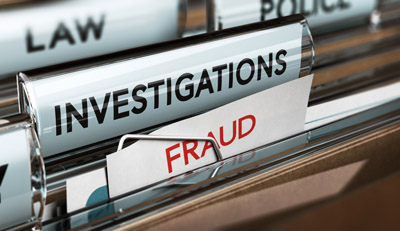Of the 1,399 individuals and entities found guilty or liable in cases involving relief programs as of June, most were sentenced to between one and five years.
As U.S. authorities continue to track down people who fraudulently stole federal pandemic aid, a new report found most of those convicted will spend less than five years in prison and hundreds won't serve time in prisons at all.
A new report from the U.S. Government Accountability Office shows those convicted of pandemic fraud represent just the tip of the iceberg. The rest of the iceberg is made up of potential fraud. And what's underneath the surface may never be known, according to the report.
"Because not all fraud will be identified, investigated and adjudicated through judicial or other systems, the full extent of fraud associated with the COVID-19 relief funds will never be known with certainty," according to the report.
The tip of the iceberg includes at least 1,399 individuals or entities who were found guilty or liable in cases involving federal COVID-19 relief programs and 599 other individuals or entities with pending federal fraud charges as of June 30.
Most of those convicted have faced less than five years in prison, according to the report. In fact, 216 were sentenced to either time served awaiting trial, supervised release or probation. Another 111 got less than a year behind bars. The biggest slice---536---got between one and five years in prison. Another 155 got between five and 10 years, and 33 got more than 10 years.
Some estimates of fraud in COVID-19 relief programs exist. The Small Business Administration's Office of Inspector General estimated that as of June, SBA disbursed more than $200 billion---about 17% of SBA's total COVID-19 spending---in potentially fraudulent pandemic relief loans. In September, the GAO estimated the fraud in the Department of Labor's unemployment insurance programs during the pandemic---from April 2020 through May 2023---was likely between $100 billion and $135 billion.










Abby Andrews